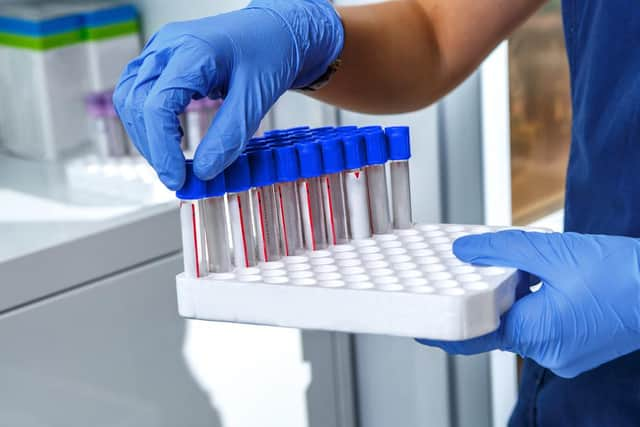UK testing chief: fresh indications Covid-19 immunity exists are encouraging
Fears had been sparked that hopes of creating a natural “herd immunity” against the deadly virus might have been lost after almost 300 cases in South Korea emerged of people who had seemingly contracted Covid-19 a second time.
But the country’s Central Clinical Committee for Emerging Disease Control announced that the cases of allegedly reinfected people was due to a testing fault, and not a short-lived immunity.
Advertisement
Hide AdAdvertisement
Hide AdProfessor John Newton, the UK’s testing effort co-ordinator, said the announcement was “promising” when asked about the findings.


The Academy of Medical Sciences said it is thought around 80% of the population would need to be immune for so-called herd immunity – where enough people have developed immunity to stop it spreading through the population – to occur.
Figures advising the Government, including chief scientific adviser Sir Patrick Vallance, explained previously that the reason a lockdown in the UK was delayed until March 23 was because there had been plans to create conditions whereby herd immunity could develop.
Speaking at the Downing Street daily coronavirus briefing on Friday, Prof Newton said the science on immunity was “still emerging” but called the fresh findings from South Korea “promising”.
“A general rule would be that you would never make a decision based on a single study, so we would very much want to see that result replicated in other studies before we decided that was really the case,” he said.
“It is obviously promising. I think people have said before in these briefings that it would be very surprising if there was no immunity after infection, but at the moment the science is still not precise about how much immunity you get and how long it lasts.
“But, nevertheless, results such as the one you mention are encouraging.”
It comes as scientists and academics vowed to make investigations into immunity a priority, setting the target of uncovering answers within the next 12 to 18 months.
Advertisement
Hide AdAdvertisement
Hide AdThe Academy of Medical Sciences and the British Society for Immunology, in a paper published on Friday, said key areas for study regarded establishing what, if any, protection is provided by antibodies developed by recovered patients, whether T-cells are involved in generating immunity, and how antibody tests could be safely and reliably used.
The paper concluded that the answers to these questions “can help us to understand what herd immunity to this virus may currently exist, or develop within the population”.
Professor Danny Altman, professor of immunology at Imperial College London who was on the advisory group for the research paper, said he was “hopeful” scientists would be able to come up with the answers.
The World Health Organisation has warned there is currently no evidence that people who have recovered from Covid-19 and developed antibodies are protected against reinfection.
A message from the Editor
Thank you for reading this story on our website. While I have your attention, I also have an important request to make of you.
With the coronavirus lockdown having a major impact on many of our advertisers - and consequently the revenue we receive - we are more reliant than ever on you taking out a digital subscription.
Subscribe to scotsman.com and enjoy unlimited access to Scottish news and information online and on our app. With a digital subscription, you can read more than 5 articles, see fewer ads, enjoy faster load times, and get access to exclusive newsletters and content. Visit https://www.scotsman.com/subscriptions now to sign up.
Our journalism costs money and we rely on advertising, print and digital revenues to help to support them. By supporting us, we are able to support you in providing trusted, fact-checked content for this website.
Joy Yates
Editorial Director
Comments
Want to join the conversation? Please or to comment on this article.